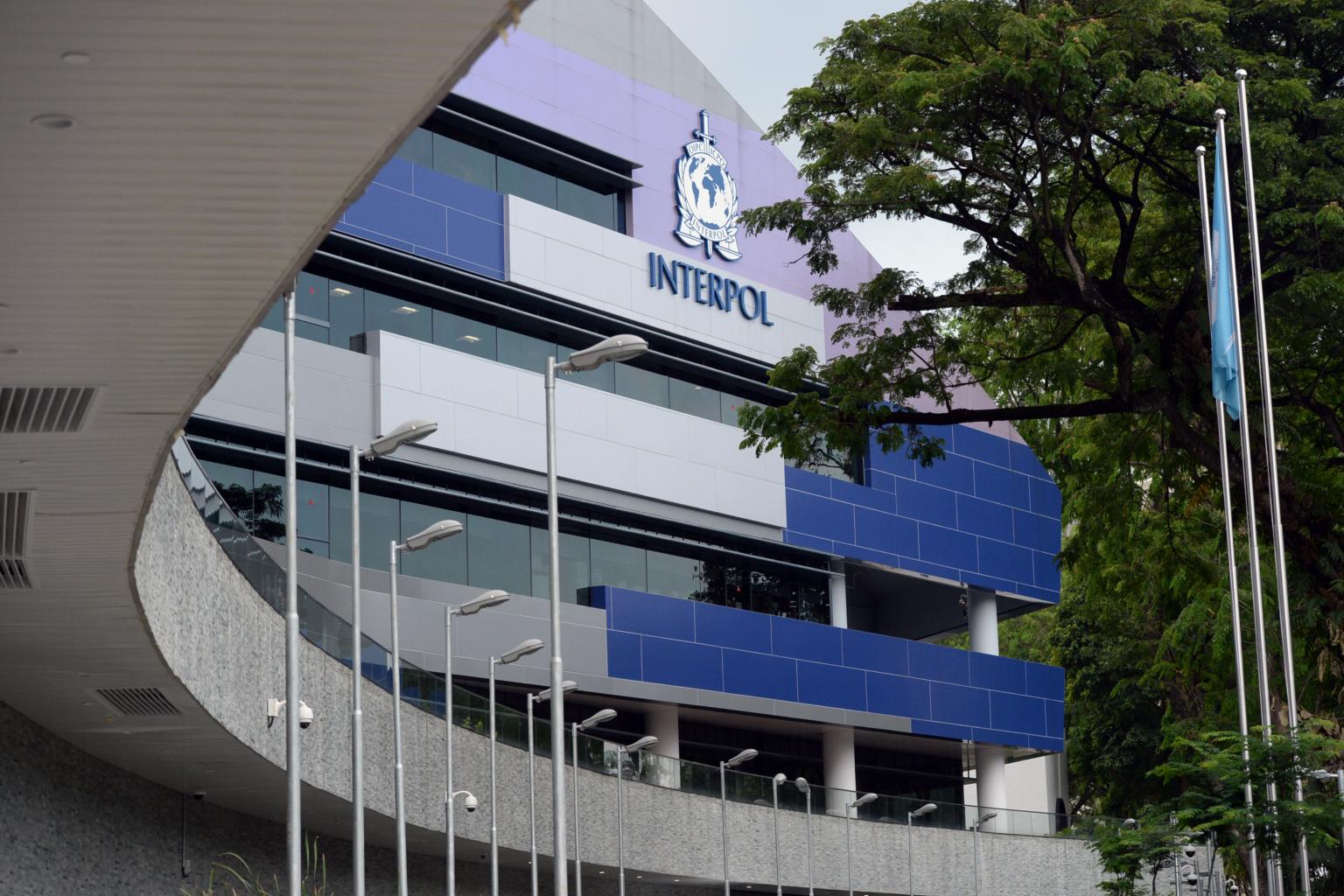Interpol operation across 14 countries unearths new routes, methods for drug trafficking
Sign up now: Get insights on Asia's fast-moving developments

The entire anti-drug operation was overseen by an operational coordination unit at the Interpol Global Complex for Innovation in Singapore.
PHOTO: ST FILE
An Interpol-coordinated operation involving more than 2,000 police and customs officials across 14 countries has unearthed a network of Western African and Asian organised crime groups behind methamphetamine trafficking in the Asean region and elsewhere.
The entire operation was overseen by an operational coordination unit at the Interpol Global Complex for Innovation in Singapore, which brought together representatives from the involved countries and the World Customs Organisation, according to a press release, which noted strong support provided for the operation by the Interpol National Central Bureaus in the Americas and Africa.
Other than the 10 Asean countries - Singapore, Brunei, Cambodia, Laos, Indonesia, Malaysia, Myanmar, the Philippines, Thailand and Vietnam - the operation involved law enforcement officials in Australia, Brazil, China, Hong Kong, Qatar, Togo and the United Arab Emirates.
Over the course of Operation Lionfish - Asean, 59 seizures were made, out of which nearly a quarter involved methamphetamine weighing approximately 121kg. Of this, 94kg was a crystalline form known as 'ice'.
The operation identified emerging smuggling routes and concealment methods for methamphetamine, one of the most smuggled drugs in the region.
Overall, the operation netted some 350kg, 50 litres and 2,175 tablets of illicit drugs including cocaine, cannabis, heroin and amphetamine-type stimulants (ATS). The value of the drugs seized during the two week operation has been estimated at US$18 million (S$24.94 million).
Authorities in the UAE identified an increasing trend of liquid cocaine being trafficked in the first week of the operation. The modus operandi of smugglers was to swallow condoms packed with liquid cocaine, as this type of concealment was harder to detect by traditional x-ray or computed tomography imagery than other types of drugs.
Based on this input, an Interpol Purple Notice was issued to all 190 member countries outlining the trend and the methods for detection.
In a separate case, following the discovery of nearly 9kg of methamphetamine hidden inside a consignment of soft toys, a controlled delivery coordinated by law enforcement in two countries resulted in the arrest of 13 individuals - seven from various African countries, two Mongolians and four Chinese nationals.
Many of the arrests during Operation Lionfish - Asean stemmed from specific intelligence-sharing, which helped identify a cocaine smuggling route via Ethiopia to destinations in the Middle East, Asia and the Pacific.
While drug trafficking was often facilitated by 'internal' contacts in the aviation and maritime areas, in Nigeria, a baggage handler was arrested for attempting to import illicit substances.
The operation also yielded other illicit goods. For example, in Vietnam, the authorities stopped an Angolan national attempting to smuggle ivory inside frozen salmon.
The first two-week leg of the operation from May 1 to 14 focused specifically on airports. A second phase is planned to target land and sea borders.
The operation was conducted under the umbrella of Interpol's Project AMEAP (Africa-Middle East-Asia Pacific), supported by funding from the UAE via the Interpol Foundation for a Safer World. AMEAP is a five-year project aimed at providing a coordination platform for a range of anti-drug trafficking initiatives either led by or involving Interpol.
"Operation Lionfish - Asean marks a new beginning in our approach to combating illicit drug smuggling through airports in the region. It shows the importance of timely information exchange and it is through such a platform that participating countries come together as one strong force, acting in unison," said Abdul Halim Rahman, Senior Officer-In-Charge of the Central Narcotics Bureau at Changi Airport in Singapore.
"Operation Lionfish has served as an example of countries cooperating to serve society on both a national and international level. We can do more when we work together," said Superintendent Efren L Fernandez II, Director of Operations at the Philippine Centre on Transnational Crime.
"It was a great honour for Malaysia to participate in this operation, where full cooperation and the sharing of vital information with other countries showed significant benefits in combating drug trafficking," said M Navamany M Rethnam, Assistant Superintendent with the Royal Malaysia Police.


